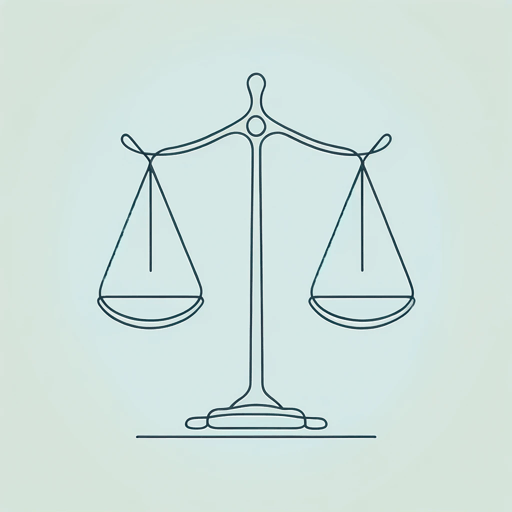29 pages • 58 minutes read
John F. KennedyJohn F. Kennedy's Inaugural Address
Nonfiction | Essay / Speech | Adult | Published in 1961A modern alternative to SparkNotes and CliffsNotes, SuperSummary offers high-quality Study Guides with detailed chapter summaries and analysis of major themes, characters, and more.
Summary and Study Guide
Summary: “President John F. Kennedy’s Inaugural Address”
Almost a million people in Washington, DC, endured freezing temperatures to catch a glimpse of newly elected US President John F. Kennedy delivering his inaugural address on January 20, 1961, as he was sworn in as the 35th US president. Like all presidential inaugural speeches, Kennedy’s sought to set a tone for his administration and define his vision for the country. Unlike other inaugurals, however, Kennedy’s has become a touchstone document in US political history. Speechwriters and scholars continue to study and admire the text for its eloquence and for the vision of hope it articulates.
This guide uses Voice of Democracy’s online version of the text, which contains numbered paragraphs. In addition to this version, the John F. Kennedy Presidential Library and Museum offers a video of the speech.
The speech contains three main sections, each using a different rhetorical strategy and highlighting a different theme. In the first section, Kennedy grounds America’s present in its past (Paragraphs 1-4). He emphasizes that his election proceeds from principles announced by America’s founders: “We dare not forget today that we are the heirs of that first revolution” (Paragraph 4). He stresses the need for the US to continue its commitment to the principles that have guided the nation since its founding. He expresses this continuity by saying that “the torch has been passed to a new generation of Americans” (Paragraph 4). By developing the theme of Historical Continuity, Kennedy establishes his rhetorical ethos, or his implied moral character, as belonging to a noble tradition of which he seeks to be worthy.
Kennedy then turns to his vision for America’s role in the world (Paragraphs 5-20). Here, he advances his overarching theme: Globalism. He emphasizes the importance of dialogue and diplomacy in resolving conflicts and promoting peace, touting the importance of America’s leadership and its responsibility to promote freedom and democracy. In addition, he speaks about the need to reduce tensions between the US and the Soviet Union. Urging a world free from the threat of nuclear war, he says, “Let us never negotiate out of fear. But let us never fear to negotiate” (Paragraph 15). Unfolding the theme of Globalism, Kennedy outlines the rhetorical logos of his vision. His message, simply stated, is that we all share this planet, our actions affect others, and we must all work together to improve instead of destroy the earth.
In the third section of the speech, Kennedy sounds a rousing call to implement his program (Paragraphs 21-28). Repeatedly interlinking the interests of nations, he proposes making the whole world safe for democracy: “And the glow from that fire can truly light the world” (Paragraph 25). He calls on Americans to work for a more just and equal society, one that lives up to the ideals of the Declaration of Independence. He speaks about the importance of economic development and the need to address poverty and inequality. He underscores the importance of individual liberty and the need to promote human rights everywhere—and he uses pathos or emotional appeals to amplify the value and price of freedom. Most famously, he says, “And so, my fellow Americans: ask not what your country can do for you—ask what you can do for your country” (Paragraph 25). This line—and its call for US citizens to take an active role in shaping the nation’s future—has come to stand for Kennedy’s presidency as a whole.
Kennedy gave the address against a historical background defined by the Cold War struggle between the US and the Soviet Union. During the presidential campaign of 1960, he warned that American prestige had waned and that American global leadership seemed in doubt. Just two weeks before he gave his inaugural address, Soviet leader Nikita S. Khrushchev gave a speech vowing to support communist revolutions in the developing world. Kennedy therefore hoped that his address would demonstrate American resolve in a “long twilight struggle” for freedom (Paragraph 23).
Speechwriters and political analysts have praised the speech as a rhetorical masterpiece. Although Kennedy welcomed and incorporated input from speechwriters and others, he largely composed the speech himself, writing on napkins and other bits of paper as ideas came to him. Kennedy achieves sophisticated effects by using simple but abstract terms—peace, power, progress. Through repetition, he achieves a grand, epic tone, evoking great leaders from the past. By alluding to Bible passages (Paragraphs 19 and 23) and adverting to God (Paragraphs 2, 3, and 28), he conveys moral authority.
The first Catholic—and the youngest—elected president in US history, Kennedy did not live to see how influential his inaugural address would become. An assassin’s bullet killed him on November 22, 1963. Nevertheless, in the inspiring tone and vision for the future outlined in his inaugural address, Kennedy framed the initiatives that defined his presidency and set the country’s idealistic direction in the 1960s. That this speech became a manifesto for US citizens of widely disparate perspectives—antiwar activists and Green Beret commandos, countercultural “hippies” and establishment rocket scientists—suggests that the text appealed to something basic in the American soul.


